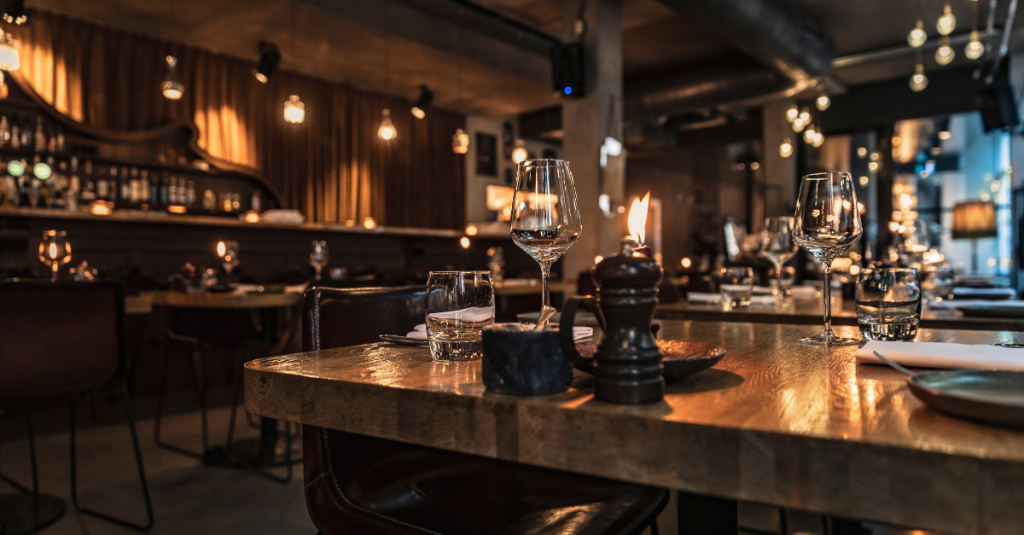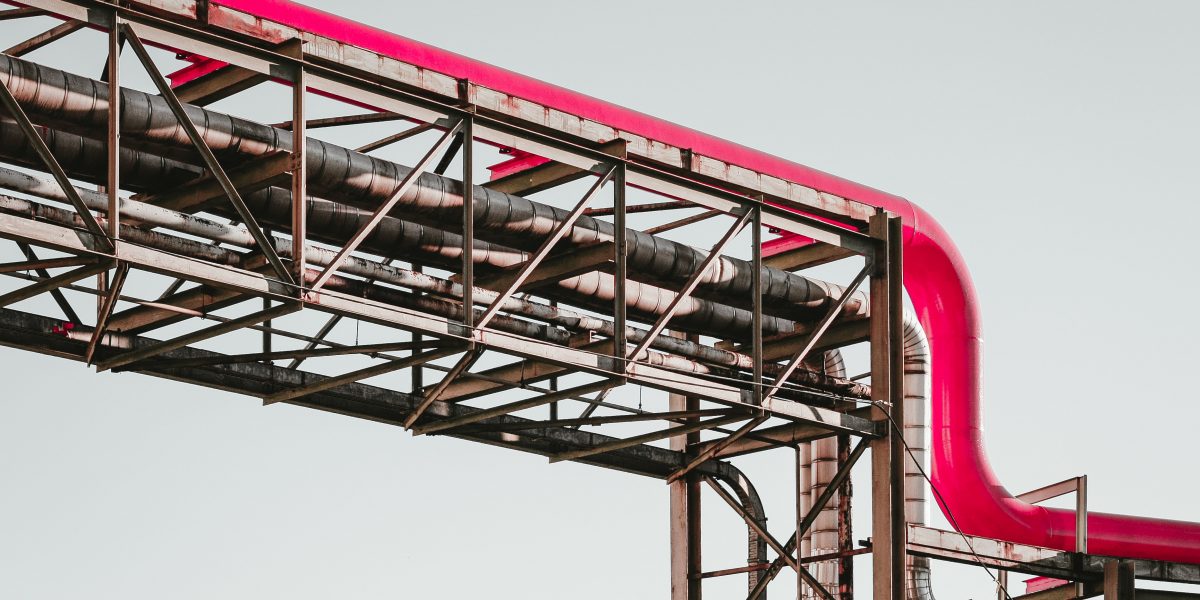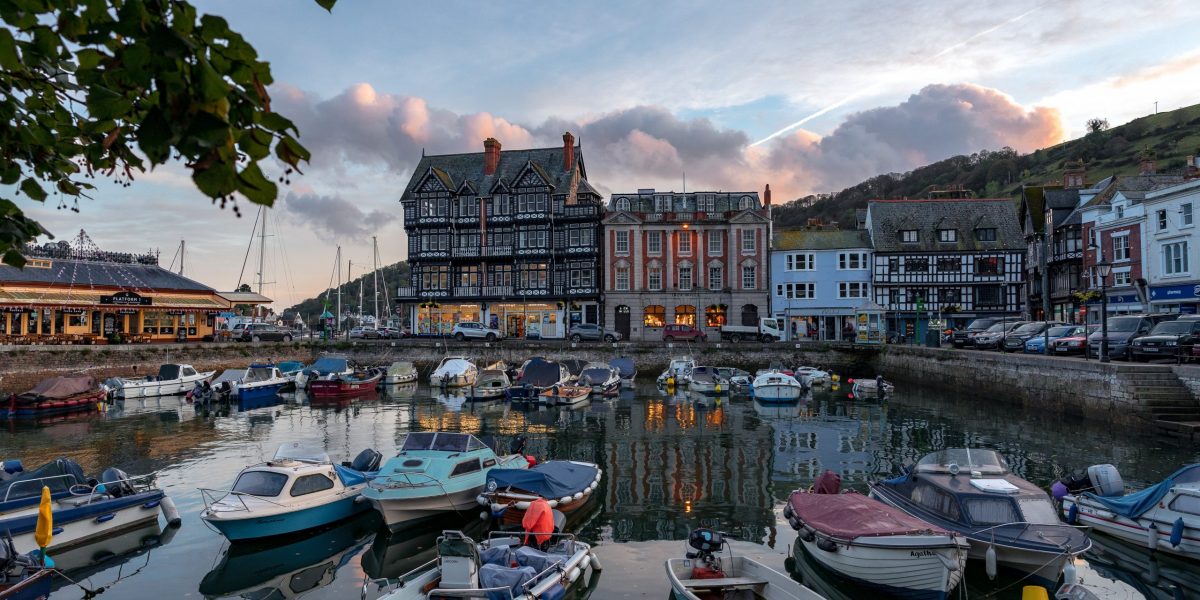Introduction
In hospitality, energy consumption often takes up a considerable chunk of operating costs. Whether you run a bustling hotel in London, or a serene spa retreat in Scotland, the way you use energy significantly impacts your bottom line. But it’s not just about the financial aspect; it’s also about your business’s environmental footprint. According to the carbon trust, the UK’s hospitality sector spends over £1 billion a year on energy. This contributes to around 3.5 million tonnes of CO2 annually, making this sector a major player in the fight against climate change.
With the UK government’s ambitious goal to reach net-zero carbon emissions by 2050, businesses across all sectors, including hospitality, are called upon to play their part, with research showing that the hospitality industry needs to reduce carbon emissions by 66% per room by 2030, and by 90% by 2050 to ensure that the growth forecast does not lead to a corresponding increase in carbon emissions. Luckily, reducing energy usage not only helps achieve these environmental targets but also brings about a substantial decrease in utility bills, positively affecting the probability of businesses. In addition, demonstrating a commitment to sustainable practices can significantly enhance a brand’s image, appealing to the increasingly eco-conscious consumer base.
In light of this, we’re going to explain to you 5 ways your hospitality business can reduce its energy usage. This blog aims to provide practical, actionable advice on how your business can become more energy-efficient, contribute to the UK’s sustainability goals, and potentially save you thousands of pounds annually.
Why Energy Efficiency Matters in the Hospitality Industry
Environmental Impact
The UK’s hospitality sector, as stated earlier, contributes to around 3.5 million tonnes of CO2 emissions annually, largely due to its energy consumption. This significant environmental footprint comes with a responsibility to act. As we face a global climate crisis, the push for businesses to adopt greener practices has never been stronger. The UK government’s commitment to achieving net-zero carbon emissions by 2050 has brought this issue to the forefront, and there’s a growing expectation for every sector, including hospitality, to contribute to this national effort.
Financial Savings
Energy costs are one of the most substantial operating expenses in the hospitalist sector. According to the Carbon Trust, energy costs can account for as much as 6% of a hospitality business’s turnover. This means that even small changes in energy usage can result in significant savings. For example, a 20% cut in energy costs can represent the same bottom-line benefit as a 5% increase in sales in many businesses.
Enhancing Business Reputation
Today’s consumers are increasingly aware and concerned about environmental issues. Many actively seek out businesses that align with their values, which often include sustainability. Aviva’s latest How We Live Report indicated that 64% of UK travellers are opting for greener options including environmentally friendly travel and accommodation. By adopting and promoting energy-efficient practices, hospitality businesses can enhance their reputation, attract more customers, and increase their competitive edge.
In the following sections, we will explore five practical ways hospitality businesses can reduce their energy usage, contribute to the UK’s sustainability goals, and enjoy the associated financial benefits.

Method 1: Energy Efficient Lighting
One of the most straightforward ways to reduce energy usage in the hospitality sector is to focus on lighting. Lighting is one of the biggest energy consumers in the hospitality sector, accounting for up to 40% of total energy use, so switching to energy-efficient alternatives can lead to considerable savings.
Role of Lighting in Energy Consumption
Lighting plays a crucial role in creating an inviting and comfortable atmosphere for guests. However, traditional incandescent and halogen lights are inefficient, converting only a small portion of the energy they consume into light, with the rest wasted as heat.
Energy-Efficient Lighting Options
LED (Light Emitting Diode) is an energy-efficient alternative that has become increasingly popular in recent years. They use significantly less energy than traditional lighting and last much longer, reducing both energy and maintenance costs. LED lights are up to 80% more efficient than traditional lighting. They also have a lifespan of up to 50,000 hours, compared to just 1,000 to 2,000 hours for incandescent bulbs.
Automatic Sensors
In addition to swapping out traditional light bulbs for energy-efficient LEDs, another lighting strategy that can have a significant impact on your energy is the installation of automatic sensors.
Automatic sensors, such as motion detectors and light-sensitive photocells, are designed to provide lighting only when and where it’s needed. Motion detectors are particularly useful in areas of your premises that are not continuously occupied, such as storerooms, restrooms, or corridors. They detect movement and switch the lights on when someone enters the space, then switch them off again when the area is unoccupied, thereby reducing unnecessary energy consumption.
Photocells, on the other hand, can be used to control exterior lighting. These sensors detect natural light levels and turn on your outdoor lights when it gets dark, then turn them off again at dawn.
Implementing automatic sensors can therefore provide a double benefit: it can further enhance the energy savings from your LED lighting and also increase the convenience by eliminating the need for staff to remember to turn lights on and off. It’s a simple step that can make a significant difference to your business’s energy usage.
Optimal Use of Natural Light
Beyond replacing inefficient light bulbs, another effective strategy is to make optimal use of natural light. This can be achieved by strategically placing mirrors to reflect sunlight, using light colours in your décor to enhance brightness, and keeping windows clean to maximise light penetration.
In the next sections, we’ll discuss more advanced strategies for reducing energy usage, such as implementing smart HVAC systems and Energy Management Systems (EMS). But remember, starting with simple changes like energy-efficient lighting can already make a significant difference.
Method 2: Smart HVAC Systems
Heating, Ventilation and Air Conditioning (HVAC) systems are one of the biggest energy consumers in the hospitality industry. HVAC systems account for approximately 53% of a hotel’s total energy consumption. By investing in smart HVAC technology, hospitality businesses can substantially reduce their energy usage and associated costs.
Energy Demands of HVAC Systems
HVAC systems are essential for maintaining a comfortable and healthy environment for guests. However, traditional systems can be highly energy-intensive, especially when not properly maintained or used inefficiently. They often operate at full capacity even when not needed, leading to unnecessary energy waste.
Benefits of Smart HVAC Systems
Smart HVAC systems provide a solution to these issues. These systems use technology like occupancy sensors, programmable thermostats, and advanced analytics to optimise energy use. For instance, smart thermostats can automatically adjust temperatures based on room occupancy and outside weather conditions. This can lead to energy savings of up to 15% of total hotel energy bills and up to around 30% of HVAC energy costs.
Moreover, smart HVAC systems often come with advanced monitoring capabilities that can alert you to inefficiencies or faults in the system, allowing for proactive maintenance and further energy savings.
Maintaining HVAC Systems for Peak Efficiency
Regular maintenance is key to ensuring HVAC systems operate at peak efficiency. This includes cleaning or replacing filters regularly, checking the system controls, and ensuring ducts and pipes are properly insulated. A poorly maintained system can consume up to 60% more energy, according to the Building Services Research and Information Association (BSRIA).
Investing in smart HVAC technology can offer significant energy savings for hospitality businesses. While the upfront costs can be higher than traditional systems, the long-term savings often make it a worthwhile investment.
In the next section, we’ll discuss another advanced strategy for reducing energy usage: Energy Management Systems.
Method 3: Implement Energy Management Systems (EMS)
As hospitality businesses look for more sophisticated ways to reduce energy usage, many are turning to Energy Management Systems (EMS). These systems offer a comprehensive approach to monitoring, controlling, and reducing energy consumption.
What is an Energy Management System?
An Energy Management System is a suite of software tools used to track, analyse and optimise energy consumption within a building. These systems can provide real-time data on energy usage across different areas of your premises, from individual rooms to larger facilities like kitchens or conference rooms.
How EMS Can Help Monitor and Control Energy Usage
EMS can be incredibly effective in helping hospitality businesses identify areas of high energy usage and implement measures to reduce this consumption. They provide granular insights into your energy usage patterns, allowing you to spot inefficiencies and make targeted improvements.
For example, an EMS can identify if a particular room’s heating is always on or if certain equipment is consuming more energy than it should. With this data, you can take action, such as adjusting temperature set points, scheduling equipment operation for off-peak hours, or even replacing energy-intensive equipment.
Implementing an EMS can help businesses reduce energy costs by 10-20%.
Success Stories of EMS Implementation in the Hospitality Industry
Many hospitality businesses in the UK have already reaped the benefits of implementing an EMS. For instance, Whitbread, the UK’s largest hotel operator, implemented an EMS across its Premier Inn hotels and reported energy savings of 12% in the first year alone.
Investing in an Energy Management System can provide hospitality businesses with the tools they need to make informed decisions about their energy usage, leading to significant cost savings and environmental benefits.
In the next section, we’ll explore another crucial aspect of energy efficiency: water conservation.
Method 4: Water Conservation
Water conservation may not immediately come to mind when thinking about energy usage, but the two are closely linked. Heating water for showers, laundry, dishwashing, and other uses is a significant energy drain in the hospitality industry. By reducing water usage, you can also reduce the amount of energy required to heat that water, leading to significant energy and cost savings.
The connection between Water Usage and Energy Consumption
In the hospitality sector, hot water is a major contributor to energy consumption. According to the Institute of Hospitality, heating and hot water can account for more than 60% of energy used in a hotel. Energy is required to heat water for various uses, such as hot showers, laundry, and cooking. Therefore, reducing water usage can lead to significant energy savings.
Strategies for Reducing Water Usage
There are many strategies for reducing water usage in the hospitality industry. These include installing low-flow fixtures in showers and taps, using water-efficient appliances, and implementing a water management plan.
For example, low-flow fixtures can reduce shower head water usage to around 6 litres per minute according to Water wise, a UK-based water efficiency authority. Similarly, water-efficient appliances, such as dishwashers and washing machines, can significantly reduce both water and energy usage.
A water management plan can also be highly effective. This involves monitoring your water usage, setting reduction targets, and implementing measures to achieve these targets. It can also include staff training and guest education initiatives to promote water-saving behaviours.
Reducing Water Bills
In addition to energy savings, reducing water usage can also significantly lower your water bills. With water and sewerage costs on the rise in the UK, this can result in substantial cost savings for your business.
In the next section, we’ll discuss the final way hospitality businesses can reduce energy usage: through training and awareness. But remember, water conservation is not just about saving money; it’s also about preserving a precious resource and contributing to the UK’s sustainability goals.
Method 5: Training and Awareness
The final, yet equally crucial way to reduce energy usage in the hospitality sector is through training and awareness. Your team members are on the front lines of your operations, and their actions can significantly impact your business’s energy consumption. By training your staff on energy-efficient practices and creating a culture of sustainability, you can make a significant difference in your energy usage.

The Role of Employees in Energy Conservation
Employees play a crucial role in any energy conservation efforts. Their actions, from turning off lights when not in use to properly managing HVAC systems, can either contribute to or detract from your energy-saving goals.
However, many employees are not aware of their impacts on energy usage or how they can help reduce it. This gap can be addressed through effective training and awareness programs.
Training Staff in Energy-Efficient Practices
Training programs can help employees understand the importance of energy conservation and equip them with practical ways to reduce energy usage in their day-to-day roles. This can include simple actions like turning off appliances when not in use, using natural light when possible, and reporting any issues that could lead to energy waste, such as leaks or faulty equipment.
Creating a Culture of Sustainability
Beyond training, it’s important to create a culture of sustainability within your business. This means making energy conservation a part of your business’s values and practices. You can encourage this culture by recognising and rewarding energy-saving behaviours, involving employees in decision-making around energy, and practices, and regularly communicating about your energy-saving goals and progress.
By investing in training and awareness, you can turn your team into active participants in your energy conservation efforts. This not only leads to energy savings but also helps engage your team and enhance your business’s reputation as a sustainable business.
In the next section, we’ll share some success stories of hospitality businesses in the UK that have effectively reduced their energy usage. These stories can provide inspiration and practical ideas for your energy conservation efforts.
Conclusion: The Journey Towards Energy Efficiency
Reducing energy usage in the hospitality industry is more than just a cost-saving measure – it’s a vital part of the global and national commitment to combat climate change. With the UK’s goal to reach net-zero carbon emissions by 2050, it’s essential for every sector, including hospitality, to contribute to this effort.
As we’ve seen, there are many ways hospitality businesses can reduce their energy usage, from simple steps like switching to energy-efficient lighting, to more advanced strategies like implementing an Energy Management System. But perhaps the most important factor is a commitment to sustainability and a willingness to invest in long-term benefits.
Training and awareness also play a crucial role. By involving your team in your energy-saving efforts, you can create a culture of sustainability that not only reduces your energy usage but also enhances your business’s reputation and appeal to today’s environmentally conscious consumers.
While the journey towards energy efficiency might require investment and effort, the potential rewards are substantial. From cost savings and enhanced reputation to contributing to the UK’s sustainability goals, the benefits of reducing energy usage are clear.
In conclusion, it’s time for the hospitality industry to embrace energy efficiency. By doing so, we can help create a sustainable future for our businesses, our customers, and our planet.
One final way your business can lower your energy bill is by finding lower rates for your energy using. For help with finding lower rates, you can contact one of our Cost Management Consultants. Unyfi can help support your business in saving you money on your energy costs. Get in touch today and find out how Unyfi can help you.



Share this article